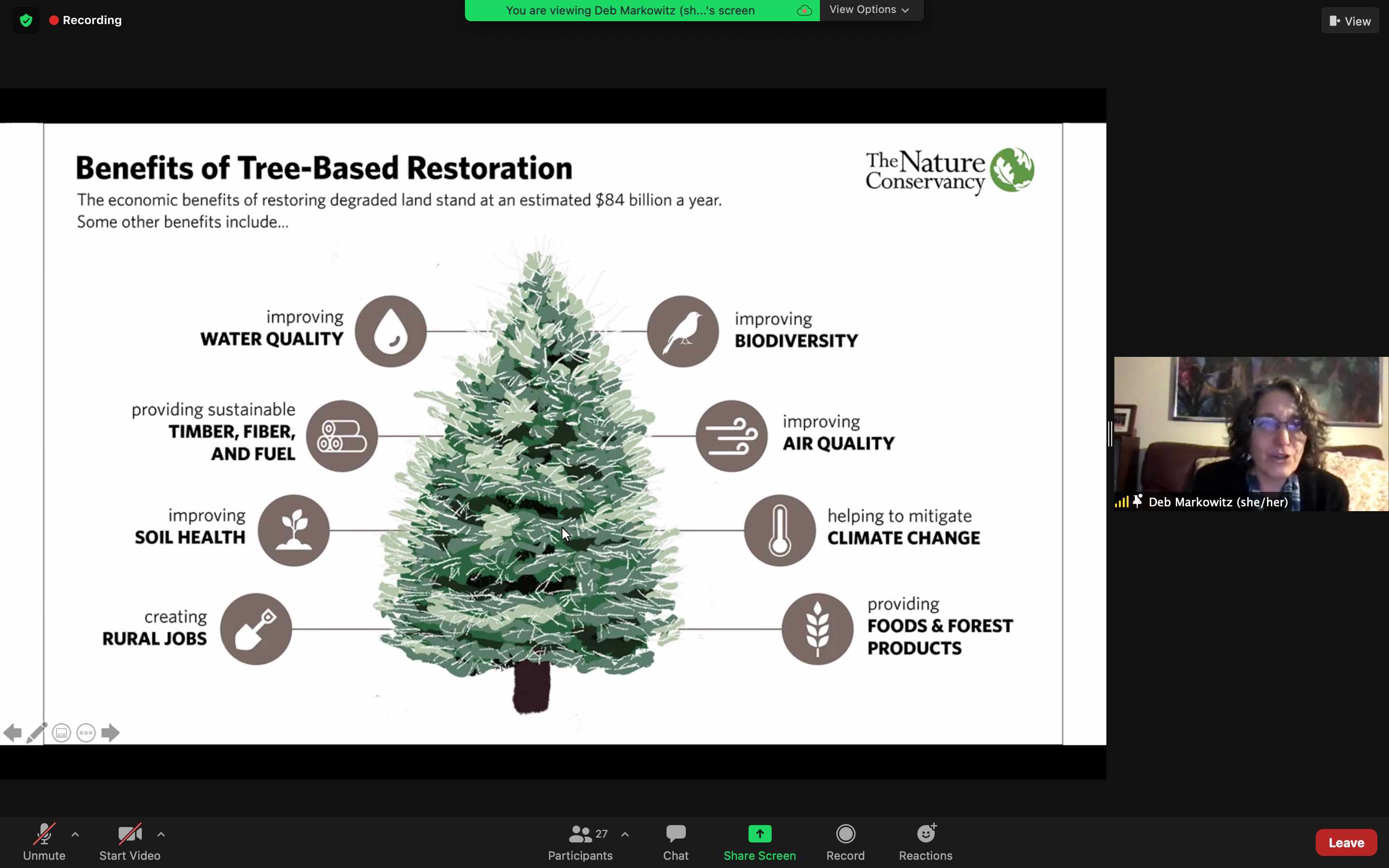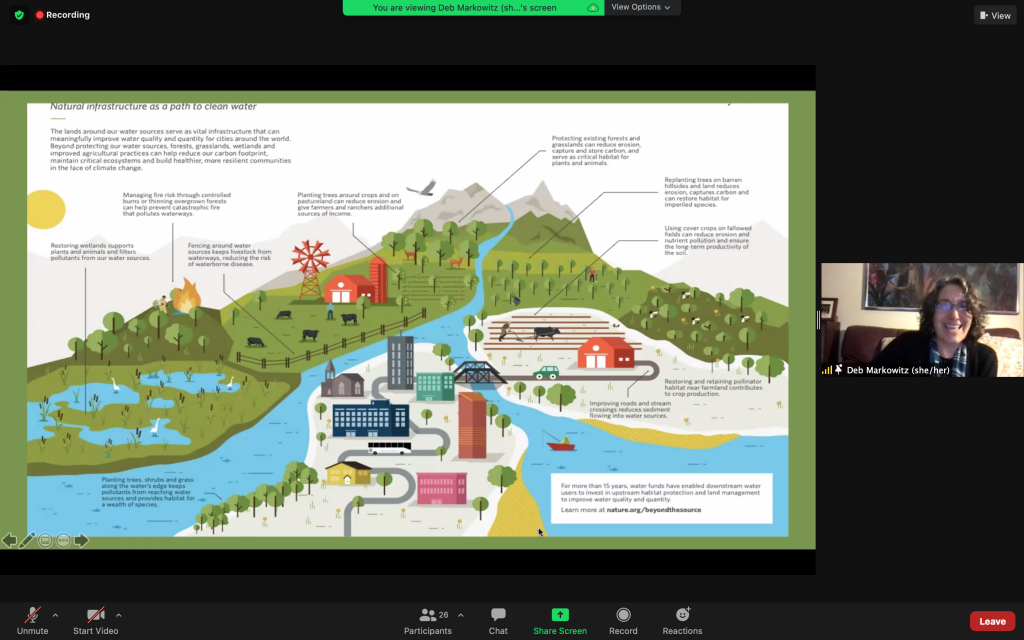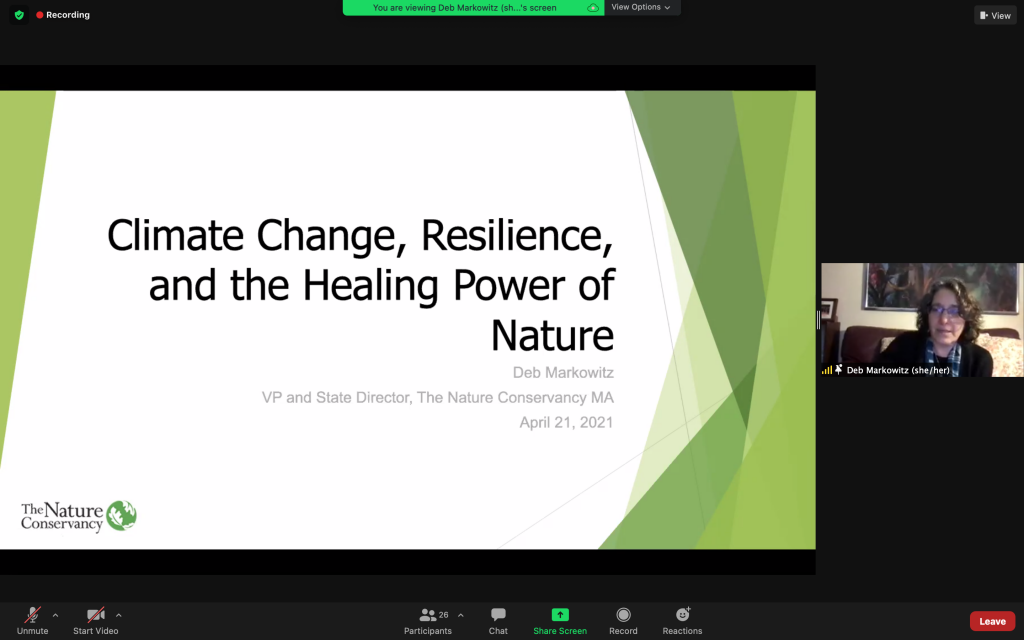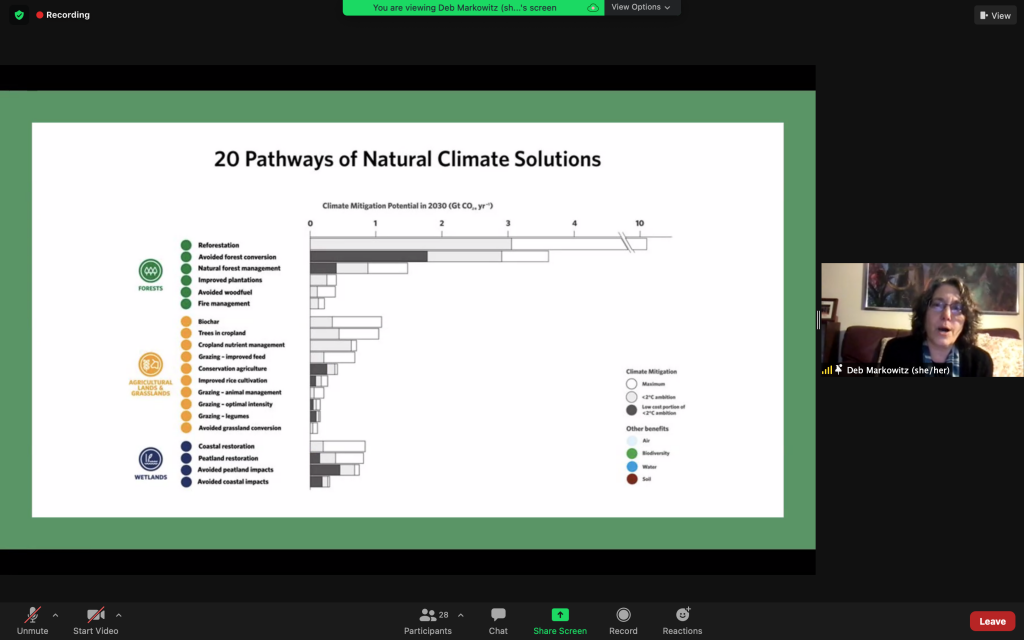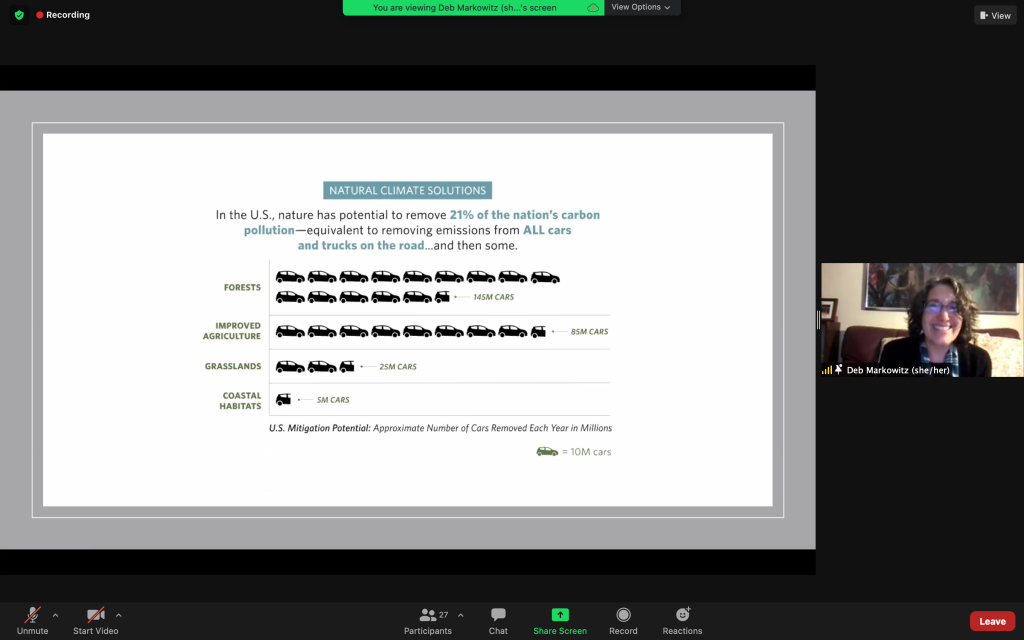By Luke Canavan
***

FRAMINGHAM – Framingham Public Library on Thursday, April 21, hosted a virtual event titled Climate Change, Resilience, and the Healing Power of Nature, as part of the Library’s changing climate series.
Speakers for the event included The Nature Conservancy Vice President and State Director Deb Markowitz and Energize Framingham Lead Aimee Powelka.
The Nature Conservancy is an environmental non-profit that works to create a world where both people and nature can thrive in harmony. They impact conservation in over 72 countries and territories, and have over one million members.
The main topic of the event was to discuss natural solutions to our current natural problems.
[broadstreet zone=”59947″]
“Nature-based solutions use natural features or processes to adapt to impacts of climate change and/or enhance community resilience,” wrote Markowitz. “Natural climate solutions use nature and natural processes to pull greenhouse gases from the atmosphere and store carbon.”
Some examples of natural solutions include wildlands, woodlands, and trees in cities.
“Forest reserves, managed by nature and without harvesting, remove large amounts of carbon pollution from the air and store it in tree trunks, leaves, roots and soils,” wrote The Nature Conservancy. “Protecting forests and allowing them to grow for centuries means they can store more carbon each year.”
The longer these wildlands and woodlands stay intact, the bigger they will become, and the more they can remove carbon pollution from our environment and world.
Some of the pathways that can be used to attain natural climate solutions include reforestation, avoiding forest conversions, grazing, and both coastal and peatland restoration.
[broadstreet zone=”59945″]
“In the U.S., nature has the potential to remove 21% of the nation’s carbon pollution—equivalent to removing emissions from ALL cars and trucks on the road… and then some,” wrote The Nature Conservancy.
Not only are there environmental impacts from natural solutions, but there are also economic benefits as well.
“The economic benefits of restoring degraded land stand at an estimated $84 billion a year,” wrote The Nature Conservancy.
Other benefits include improving water quality, biodiversity, air quality, and soil health, while also creating rural jobs and providing foods and forest products.
[broadstreet zone=”59982″]
In Massachusetts, the Municipal Vulnerability Preparedness (MVP) Program has found great success in natural solutions.
“Successes include Salem’s living shoreline, Newbury’s assessment of the role shoreline salt marshes play in mitigating storm damage, and Natick’s tree-planting efforts to cool neighborhoods and reduce runoff,” wrote The Nature Conservatory. “As of June 2019, 43% of municipalities in the state will have gone through the planning process.”
Powelka also encouraged viewers to check out Energize Framingham to learn how to help the community of Framingham combat climate change.
[broadstreet zone=”70106″]
***
Luke Canavan is a 2021 Spring SOURCE intern. He is a senior at UMass Amherst, who will graduate in May.

